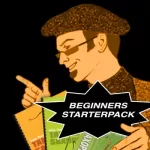flukeyluke
Well-Known Member
- Messages
- 227
- Location
- Isle Of Wight
Has anyone tried this course? Looks interesting and think I may try it, would be good to hear what others opinion of it is if they have tried it.
Thanks
Luke
Thanks
Luke

The point of this is ...
I was also playing clarinet, I had started playing clarinet a few years earlier
Of course I was playing in the school big band too, and I knew what chord changes were

Yes I was very lucky to have come up in a time and place where music in the public schools was flourishing. In high school I played in concert band (we were marching band during football season…), orchestra and jazz band. As well as a community youth orchestra that met once a week, and a community youth jazz band that met on Saturdays. During the summer there was a wonderful music camp. I was an assistant counselor there my last summer before I graduated high school, which meant I got to hang with my peeps for the whole summer.Surely another point is that you already had a solid base of playing (by age 13! Fantastic) by the time you cop'd it by ear etc?
Sure.And frankly, it’s the best way.
And is not only in music, art ..... most of us are improvising every day!!I'm just popping in to remind folk that 'improvising' and 'jazz' are not synonyms.